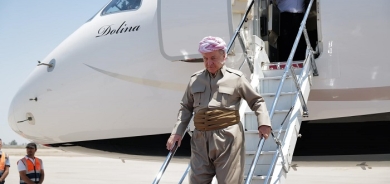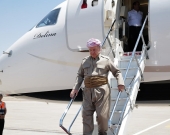Refugee Crisis Deepens in Iraq as Camps Close Amidst Security Concerns

The Danish Refugee Council (DRC) has released a report detailing the increasingly dire situation faced by refugees returning to Sinjar, Mosul, and other central Iraqi regions. The closure of refugee camps and the resultant lack of essential services, combined with ongoing security threats, have created severe hardships for the returnees.
The crisis follows the Iraqi federal government's decision to close all refugee camps across Iraq and the Kurdistan Region, effective January 23, 2024. Despite this, 23 camps remain operational in the Kurdistan Region, located in the Erbil, Duhok, and Sulaymaniyah provinces.
"The camps previously housed about 150,000 people, with 1,938 families having returned home since the Iraqi government's decision," the latest DRC report states. According to the organization, 1,220 families have returned to Sulaymaniyah, 653 to Duhok, and 263 to Erbil.
The Kurdistan Regional Government (KRG) has emphasized that no one will be forced to return or be affected by camp closures. However, the DRC report underscores ongoing security and stability challenges in Mosul, Sinjar, and central Iraq.
"Returnees face difficult circumstances, including inadequate shelter, water, electricity, and basic services, contributing to a sense of hopelessness," the report continues. While some camps in Sulaymaniyah, including the Ashti Camp, have already been closed, camps in Erbil and Duhok are expected to remain open.
The DRC attributes this decision to concerns among Duhok's predominantly Yazidi refugee population from Sinjar, who are hesitant to return due to ongoing insecurity and unfavorable conditions in their hometowns. Similarly, many refugees in Erbil originate from Mosul and surrounding areas and express concerns about the safety of returning to their former homes.
The report also highlights the implications of not closing camps, particularly regarding the Iraqi government's suspension of humanitarian aid to these sites, exacerbating conditions for refugees. According to the DRC, over 8,500 refugee families from Salahaddin province are currently residing in camps within the Kurdistan Region. Their former areas, especially Yathrib in southern Salahaddin, remain heavily damaged from the ISIS conflict.
Since March, approximately 4,700 individuals have returned home but continue to lack essential services. Some refugees interviewed by the DRC have criticized the Iraqi government for providing inadequate financial assistance upon return, with allocations of only four million dinars seen as insufficient for their needs.
"Beyond the absence of services and employment opportunities, residents face renewed fears of armed group activity and the resurgence of ISIS in these areas," the report concludes.
The DRC's findings paint a grim picture of the current situation for Iraqi refugees, calling for immediate international attention and intervention to address the humanitarian crisis unfolding in the region.












